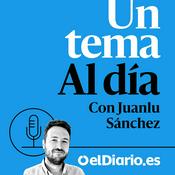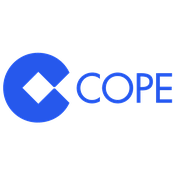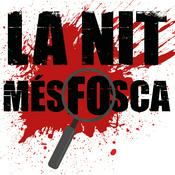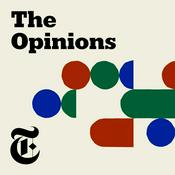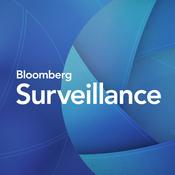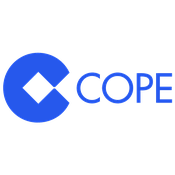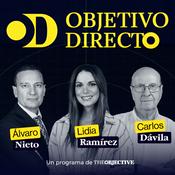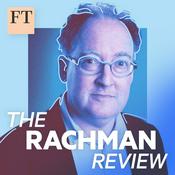1054 episodios
Jon R. Lindsay "Age of Deception: Cybersecurity as Secret Statecraft" (Cornell UP, 2025)
07/2/2026 | 38 minAt the heart of cybersecurity lies a paradox: Cooperation makes conflict possible. In Age of Deception (Cornell University Press 2025), Jon R. Lindsay shows that widespread trust in cyberspace enables espionage and subversion. While such acts of secret statecraft have long been part of global politics, digital systems have dramatically expanded their scope and scale. Yet success in secret statecraft hinges less on sophisticated technology than on political context.
To make sense of this, Lindsay offers a general theory of intelligence performance—the analogue to military performance in battle—that explains why spies and hackers alike depend on clandestine organizations and vulnerable institutions. Through cases spanning codebreaking at Bletchley Park during WWII to the weaponization of pagers by Israel in 2024, he traces both continuity and change in secret statecraft. Along the way, he explains why popular assumptions about cyber warfare are profoundly misleading. Offense does not simply dominate defense, for example, because the same digital complexity that expands opportunities for deception also creates potential for self-deception and counter-deception.
Provocative and persuasive, Age of Deception offers crucial insights into the future of secret statecraft in cyberspace and beyond.
Our guest is Jon R. Lindsay, an Associate Professor at the School of Cybersecurity and Privacy and the Sam Nunn School of International Affairs at Georgia Tech.
Our host is Eleonora Mattiacci, an Associate Professor of Political Science at Amherst College. She is the author of "Volatile States in International Politics" (Oxford University Press, 2023).
Learn more about your ad choices. Visit megaphone.fm/adchoices
Support our show by becoming a premium member! https://newbooksnetwork.supportingcast.fm/technologyTom Griffiths, "The Laws of Thought: The Quest for a Mathematical Theory of the Mind" (Henry Holt and Co., 2026)
04/2/2026 | 1 h 8 minThe Laws of Thought: The Quest for a Mathematical Theory of the Mind (Henry Holt and Co., 2026) is an exploration of the quest to use mathematics to describe the ways we think, from its origins three hundred years ago to the ideas behind modern AI systems and the ways in which they still differ from human mindsEveryone has a basic understanding of how the physical world works. We learn about physics and chemistry in school, letting us explain the world around us in terms of concepts like force, acceleration, and gravity—the Laws of Nature. But we don’t have the same fluency with concepts needed to understand the world inside us—the Laws of Thought. While the story of how mathematics has been used to reveal the mysteries of the universe is familiar, the story of how it has been used to study the mind is not.There is no one better to tell that story than Tom Griffiths, the head of Princeton’s AI Lab and a renowned expert in the field of cognitive science. In this groundbreaking book, he explains the three major approaches to formalizing thought—rules and symbols, neural networks, and probability and statistics—introducing each idea through the stories of the people behind it. As informed conversations about thought, language, and learning become ever more pressing in the age of AI, The Laws of Thought is an essential read for anyone interested in the future of technology.
Learn more about your ad choices. Visit megaphone.fm/adchoices
Support our show by becoming a premium member! https://newbooksnetwork.supportingcast.fm/technologyGiuseppe Longo and Adam Nocek, "The Organism Is a Theory: Giuseppe Longo on Biology, Mathematics, and AI" (U Minnesota Press, 2026)
21/1/2026 | 1 h 13 minA bold reimagining of life that bridges science, philosophy, cybernetics, and the complexities of biological existence
The Organism Is a Theory: Giuseppe Longo on Biology, Mathematics, and AI (Giuseppe Longo and Adam Nocek, 2026) is an intriguing synthesis of decades of interdisciplinary research by eminent mathematician and biological scientist Giuseppe Longo. A unique collaboration between Longo and philosopher of technology Adam Nocek, the volume confronts foundational issues in the history of mathematics, computer science, physics, and theoretical biology.
Challenging conventional approaches that apply computational and formalist models to the biological world, Longo reveals how the limitations of these models hinder the understanding of organismic complexity, development, and evolution. Through a critique of dominant scientific paradigms, he emphasizes the need for a new biological theory that accounts for the temporal and spatial intricacies of life. Enhanced by Nocek's comprehensive introduction and a fascinating three-part interview with Longo, The Organism Is a Theory offers a bold rethinking of the biosciences, integrating the work of Alan Turing, Bernhard Riemann, Henri Poincaré, Kurt Gödel, and others into Longo's vision of critical biology.
Bridging scientific and philosophical discourses, this book creatively applies insights from mathematics, physics, and computing into the study of the organism to present a new theoretical approach to understanding biological complexity that resists reductive mechanistic and informatic explanations.
Retail e-book files for this title are screen-reader friendly with image accompanied by short alt text and/or extended description.
Learn more about your ad choices. Visit megaphone.fm/adchoices
Support our show by becoming a premium member! https://newbooksnetwork.supportingcast.fm/technologyRobert Dorschel, "The Social Codes of Tech Workers: Class Identity in Digital Capitalism" (MIT Press, 2025)
20/1/2026 | 40 minWho are the people staffing the digital economy? In The Social Codes of Tech Workers: Class Identity in Digital Capitalism (MIT Press, 2025) Robert Dorschel an Assistant Professor in Digital Sociology at the University of Cambridge, explores an occupation that has emerged as central to modern economies and societies. Drawing on an extensive range of interview fieldwork, the book offers a compelling picture of the working lives, along with the social and cultural interests of these workers, giving details on a section of the tech profession that is neglected in discussions that focus on the billionaire founders and owners in the sector. The book is also theoretically rich, considering the nature of work in modern society, the question of where these workers fit within social class structures, and crucially how they experience and understand both work and class. A significant addition to research on the tech sector, the book is essential reading across the humanities and social sciences, and is available open access here.
Learn more about your ad choices. Visit megaphone.fm/adchoices
Support our show by becoming a premium member! https://newbooksnetwork.supportingcast.fm/technologyEmily Hund, "The Influencer Industry: The Quest for Authenticity on Social Media" (Princeton UP, 2023)
19/1/2026 | 49 minBefore there were Instagram likes, Twitter hashtags, or TikTok trends, there were bloggers who seemed to have the passion and authenticity that traditional media lacked. The Influencer Industry: The Quest for Authenticity on Social Media (Princeton UP, 2023) tells the story of how early digital creators scrambling for work amid the Great Recession gave rise to the multibillion-dollar industry that has fundamentally reshaped culture, the flow of information, and the way we relate to ourselves and each other.
Drawing on dozens of in-depth interviews with leading social media influencers, brand executives, marketers, talent managers, trend forecasters, and others, Emily Hund shows how early industry participants focused on creating and monetizing digital personal brands as a means of exerting control over their professional destinies in a time of acute economic uncertainty. Over time, their activities coalesced into an industry whose impact has reached far beyond the dreams of its progenitors--and beyond their control. Hund illustrates how the methods they developed for creating, monetizing, and marketing social media content have permeated our lives and untangles the unforeseen cultural and economic costs.
The Influencer Industry reveals how, in an increasingly fractured and profit-driven communications environment, the people we think of as "real" are merely those who have learned to exploit the industry's ever-shifting constructions of authenticity.
Learn more about your ad choices. Visit megaphone.fm/adchoices
Support our show by becoming a premium member! https://newbooksnetwork.supportingcast.fm/technology
Más podcasts de Noticias
Podcasts a la moda de Noticias
Acerca de New Books in Technology
This podcast is a channel on the New Books Network. The New Books Network is an academic audio library dedicated to public education. In each episode you will hear scholars discuss their recently published research with another expert in their field.
Discover our 150+ channels and browse our 28,000+ episodes on our website: newbooksnetwork.com
Subscribe to our free weekly Substack newsletter to get informative, engaging content straight to your inbox: https://newbooksnetwork.substack.com/
Follow us on Instagram and Bluesky to learn about more our latest interviews: @newbooksnetwork
Support our show by becoming a premium member! https://newbooksnetwork.supportingcast.fm/technology
Sitio web del podcastEscucha New Books in Technology, La brújula y muchos más podcasts de todo el mundo con la aplicación de radio.es
Descarga la app gratuita: radio.es
- Añadir radios y podcasts a favoritos
- Transmisión por Wi-Fi y Bluetooth
- Carplay & Android Auto compatible
- Muchas otras funciones de la app
Descarga la app gratuita: radio.es
- Añadir radios y podcasts a favoritos
- Transmisión por Wi-Fi y Bluetooth
- Carplay & Android Auto compatible
- Muchas otras funciones de la app

New Books in Technology
Escanea el código,
Descarga la app,
Escucha.
Descarga la app,
Escucha.






